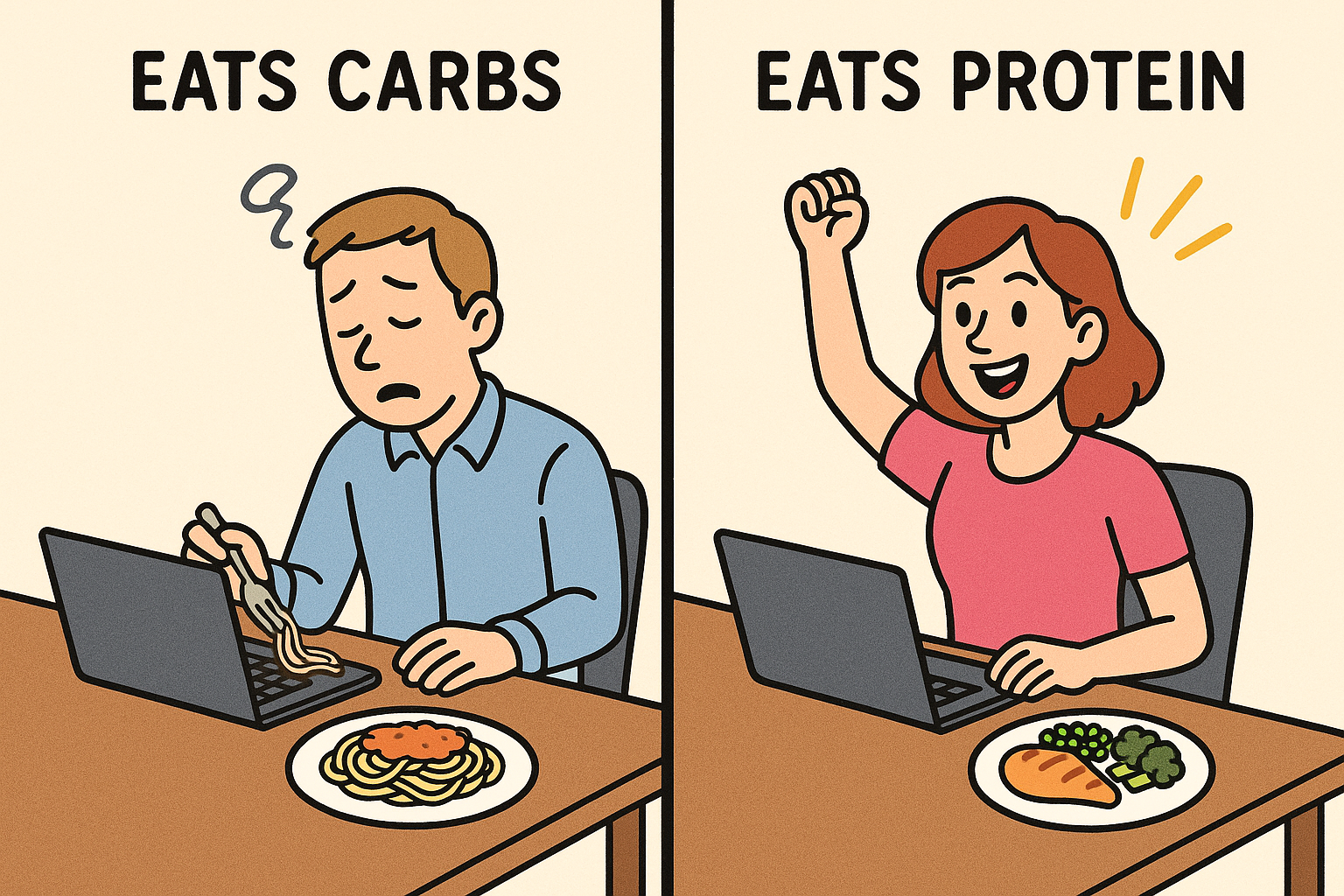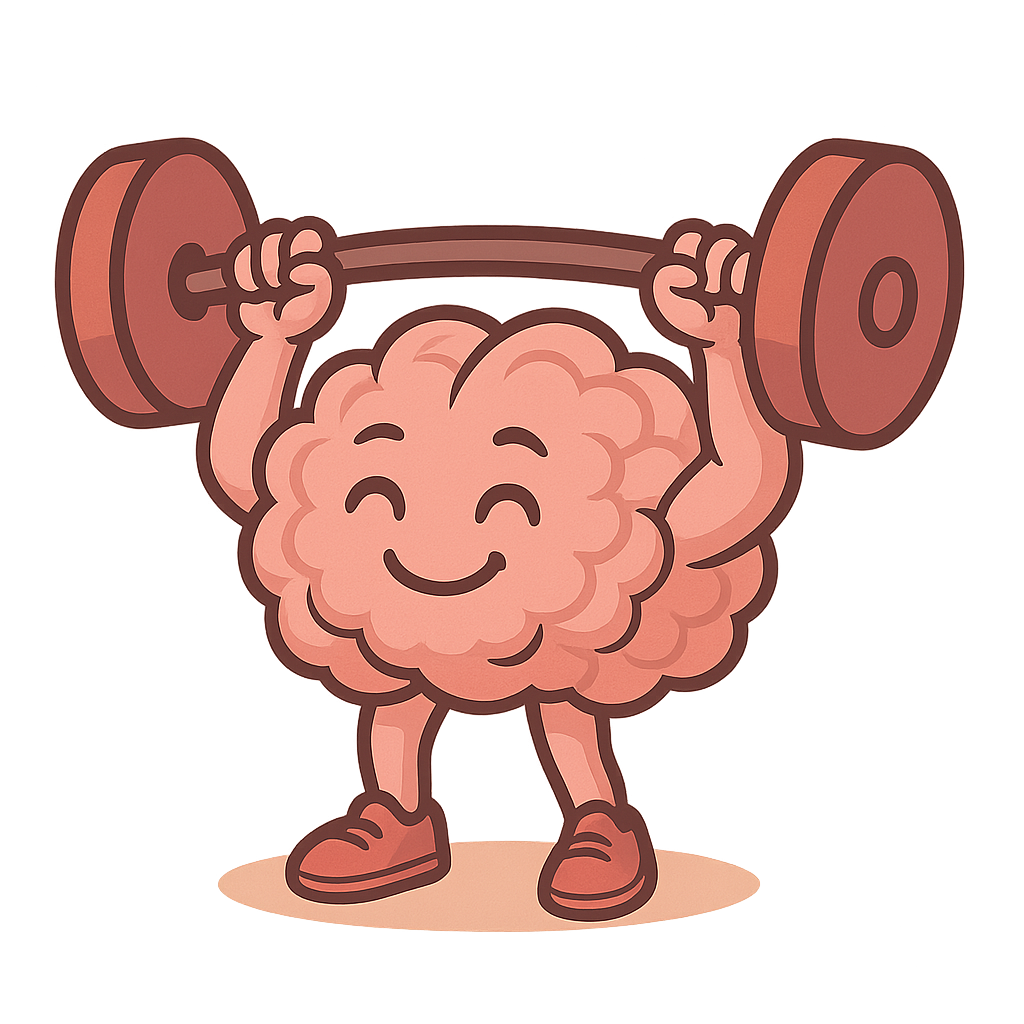Not having enough of this ingredient quietly sabotages your energy, focus, and performance
You feel like you're optimizing everything. You time-block; your Calendar app is in perfect shape; and even your email filters are perfect. Your time your choice of caffeine perfectly. So how is it that you crash every afternoon and feel like you're running on fumes?
You might just not be eating enough protein.
A Carb-Obsessed World
We live in a carbohydrate‑driven food culture that's designed to keep you hungry. Walk into any coffee shop — all you'll see are croissants, muffins, and oat milk lattes. Lunches revolve around pasta, rice, and sandwiches. Go-to snacks are crackers, nuts, and granola bars.
Yet the one nutrient that actually keeps you full and focused plays is pushed to the sideline: protein.

Protein Deficiency's Effects
When you're protein-deficient, your body starts working against you:
- Your energy becomes predictable—predictably terrible. Without adequate protein, your blood sugar rides a roller coaster. You spike with that morning pastry, crash by 11 AM, spike again at lunch, then hit the wall around 3 PM. Protein provides steady glucose release, keeping your energy consistent through those back-to-back meetings.
- Your appetite becomes your enemy. Ever notice how you can demolish a bag of chips but feel satisfied after a smaller portion of salmon? Protein triggers satiety hormones like peptide YY while suppressing ghrelin, your hunger hormone. When you're protein-deficient, your brain literally thinks you're starving. That's what's driving that obsessive snacking that creeps into late night.
- Your recovery suffers. Protein is essential for immune function, tissue repair, and stress management. When you're burning the candle at both ends, inadequate protein leaves you more susceptible to getting sick, healing slower, and feeling generally run down.
How much do I actually need?
The recommended dietary allowance (RDA) for protein is about 0.36 g per lb of bodyweight (or 0.8 g per kg of bodyweight). That translates to only 54 grams of protein per day. But if you're active, stressed, or an older adult (beyond your mid-20s), you need significantly more.
The real targets:
- Moderately active: 1.2-1.5g per kg of body weight
- Strength training: 1.6-2.0g per kg
- High stress/demanding job: Aim for the higher end
- Over 35: 1.1-1.2g per kg minimum (to prevent muscle loss)
For a 150-pound person, that's 82-136 grams daily—significantly more than most people consume.
Eating More Protein: The "Protein-First" Approach
Here's the simplest strategy that will transform your energy and appetite: Eat your protein first. At every meal, prioritize eating your protein before eating anything and everything else. This simple sequence:
- Slows glucose absorption, preventing energy crashes
- Triggers satiety signals earlier, naturally reducing portion sizes
- Improves blood sugar control throughout the day
- Makes you feel fuller, longer
Try it for one week. I guarantee you'll notice a difference in your afternoon energy levels.
On your next meal, commit to eating your protein first. Notice how you feel during and after—both physically and mentally. The fastest path to better energy isn't another coffee; it’s eating some damn protein.
Signing off,
~Your guide, not guru, Harish.
💌 Support the work, buy me an espresso!
It keeps the lights running, the writing flowing, and the espresso, too.
References
- Gannon, M. C., Nuttall, F. Q., Saeed, A., Jordan, K., & Hoover, H. (2003). An increase in dietary protein improves the blood glucose response in persons with type 2 diabetes. The American Journal of Clinical Nutrition, 78(4), 734–741. https://doi.org/10.1093/ajcn/78.4.734.
- Journel, M., Chaumontet, C., Darcel, N., Fromentin, G., & Tomé, D. (2012). Brain responses to high-protein diets. Advances in nutrition (Bethesda, Md.), 3(3), 322–329. https://doi.org/10.3945/an.112.002071.
- Batterham, R. L., Heffron, H., Kapoor, S., Chivers, J. E., Chandarana, K., Herzog, H., Le Roux, C. W., Thomas, E. L., Bell, J. D., & Withers, D. J. (2006). Critical role for peptide YY in protein-mediated satiation and body-weight regulation. Cell metabolism, 4(3), 223–233. https://doi.org/10.1016/j.cmet.2006.08.001.
- Ghazzawi, H. A., & Mustafa, S. (2019). Effect of high-protein breakfast meal on within-day appetite hormones: Peptide YY, glucagon like peptide-1 in adults. Clinical Nutrition Experimental, 28, 111–122. https://doi.org/10.1016/j.yclnex.2019.09.002.
